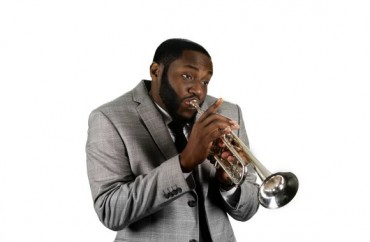
You’re probably not the least bit surprised, but new hires in Harvard’s Music Department (echoing what seems to be just about every other department) believe that “music and its academic study are inevitably bound up with social and political questions: questions about identity, community, history, and ownership.”
Brought on board in 2001 as a professor of African American music, Ingrid T. Monson says “[The] Music Department at Harvard has changed a lot in the past 10 years. A younger generation of scholars has come in, and many of the classical musicologists are more open-minded now to a broad range of music.”
Monson points out that her teaching, “which centers on the music of the African diaspora,” is “informed by social concerns” and she appears to have an issue with those who engage in … “culturally appropriating” language when it comes to (black) music.
“Music has a special place in the cultural tradition, because it’s the one place where African American culture has historically been considered better, not less, than [white culture],” [Monson] says. “It inverts the racial hierarchy.” For [her], acknowledging the origins of jazz and other genres of music in the African American community is an essential part of studying that music. “To me, that’s the ethical point from which you have to start: Let’s look at where this came from, who were the primary innovators. You can’t erase that, whatever you do,” she says. “The colorblind racism moment comes when people want to say, ‘Well, it’s everybody’s music now.’”
RELATED: Say what? Not important if ‘Hands up, don’t shoot’ is the truth
She adds that her spring 2016 course, “From R & B to Neo Soul: Black Popular Music and Cultural Transformation,” aims to advance not only her students’ understanding of aesthetics or music history but also their moral education and their ability to participate in contemporary conversations about race. “I’m very conscious that this is my first time teaching this course after Ferguson,” she says, referring to the 2014 shooting of unarmed black teenager Michael Brown by a white police officer in Ferguson, Missouri. “We’re responding to a new movement, and I very much want to encourage students to engage in this conversation.”
Precisely what conversation does Monson (who seems oblivious to the possibility that she’ll be accused of cultural appropriation as a white person) propose to have if she’s “conscious” about her course taking place post-Ferguson? Is she basing the class, in part, on the false narrative of “hands up, don’t shoot,” and that officer Darren Wilson did not act in self defense?
As a former musician who’s played in a few jazz bands, I cannot recall any study of the craft — in high school or college — that did not emphasize jazz’s origins. In fact, practically the only artists we studied were African-American (like John Coltrane and Charlie Parker).
The Crimson managed to track down at least one student who recognizes that any department expansion and desire to be “progressively relevant” can go overboard: Josh W. Bean notes that diversity “involves more than simply adding more ethnomusicology courses.”
“I believe the department should absolutely offer more courses on topics outside the Western classical tradition,” he says.
“However, the notion that there is this strict dichotomy between Western classical music and ‘other music’ should also be challenged and scrutinized more rigorously in the classroom.”
Be careful, Josh — Professor Monson might accuse you of that “colorblind racism.”
RELATED: No, an accusation of musical philistinism is NOT a microaggression
RELATED: Student: Music prof’s ignorance of cultural music trends a microaggression
Like The College Fix on Facebook / Follow us on Twitter
IMAGE: Shutterstock






Please join the conversation about our stories on Facebook, Twitter, Instagram, Reddit, MeWe, Rumble, Gab, Minds and Gettr.